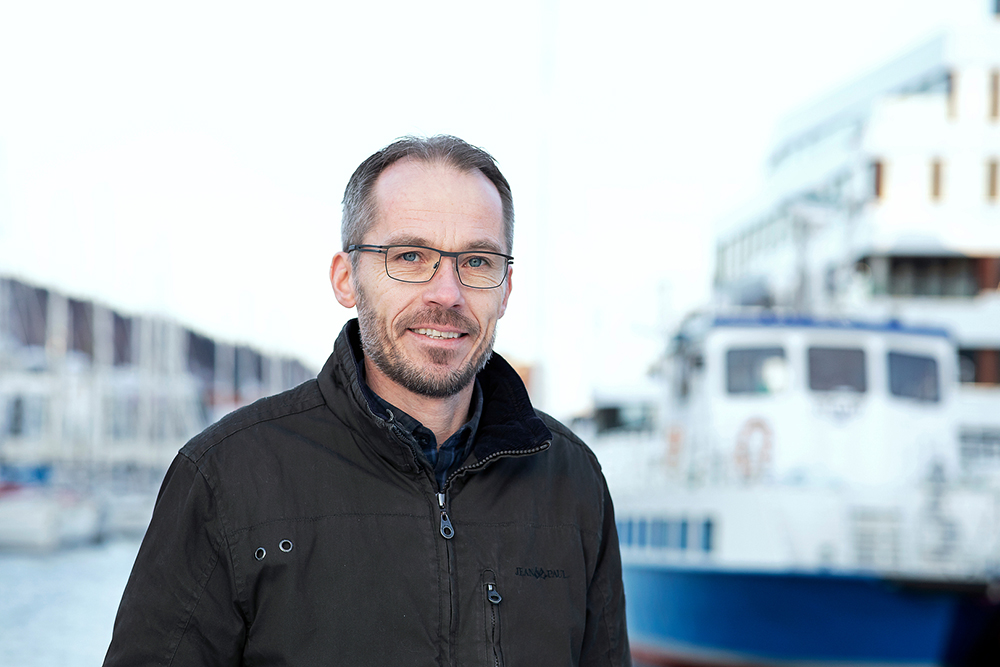
Food safety and fish welfare trump everything
Hans Høie is chief formulator for feed diets at Cargill. When the product developers have designed a feed based on the fish’s nutritional needs, it’s his job to put together the ingredients that are beneficial for the fish and in line with the customer’s requirements, and to make it work in the environment where it will be used.
This includes determining which raw materials are usable and checking availability, and not least what it’s possible for the production department to handle. The formulators work closely with the product developers and are in close contact with the factories and the operational side.
“What’s special about fish feed, as opposed to animal husbandry, is that it’s sent down in the sea. The pellet must meet the nutritional requirements of the fish and it must be strong enough to not dissolve before the fish eats it in the water.”
Why do you put the fish first in the work you do?
“It’s the core of our industry. Healthy fish is what we make a living from. Fish is excellent food, and fish farming is eco-friendly and efficient food production. Ensuring that the fish thrive and are doing well is crucial for the industry to remain eco-friendly and provide healthy and tasty food.
There is also an ethical aspect to this; we cannot allow that our “livestock”, the fish, are not doing well. We must then ensure the fish are thriving, through good fish health and welfare.
Every business needs to make money, and long-term thinking pays off. Fish health is an investment in future profitability and growth to build the industry further.”
… and how do you do it, specifically?
“In my role as a formulator I have to make sure we use the right kind of raw materials to meet our strict quality requirements in the feed production, and we must use the right amount of raw materials in the different products. This also means we must possess extensive knowledge of the nutritional value in all raw materials that are used.
In unforeseen situations and deviation from plan particularly, for instance when there’s a temporary lack of raw materials, we must keep fish health and welfare in mind when we make assessments to solve the problems.
What’s allowed and not allowed are stated in the regulations for fish feed. We never compromise in that respect.”
What would happen if you did not prioritize fish health and fish welfare in your work?
“We would risk the fish not receiving the nutrients it needs, which may result in deteriorating fish welfare and health and lower quality of fish as food for us humans.
There’s strong competition in the industry and we need to find the most cost-effective solution for our products. But if there’s the slightest doubt whether it’s safe when it comes to fish health, we immediately step on the brake. We do not enter grey zones. If there is any insecurity, we drop it. I have never experienced any pressure from any part of the organization if we put our foot down due to fish welfare concerns. It’s not overruled by financial concerns. Food safety and fish welfare are of greater importance. “
What are the benefits of prioritising fish health and welfare, and for whom?
“The main benefit is that the fish are thriving, that is our ethical responsibility. Good fish health and welfare are also profitable for us as feed producers and the customers buying the feed, as it makes consumers confident the fish is tasty and healthy food produced in an ethically sound way. We build trust with the consumers. The industry will then continue to grow and ensure a robust and profitable business.”
Why should Fish First be an important focus area for the whole of Cargill?
“Good fish welfare and health is the foundation of our industry. If we don’t meet these requirements, our industry has no future.”